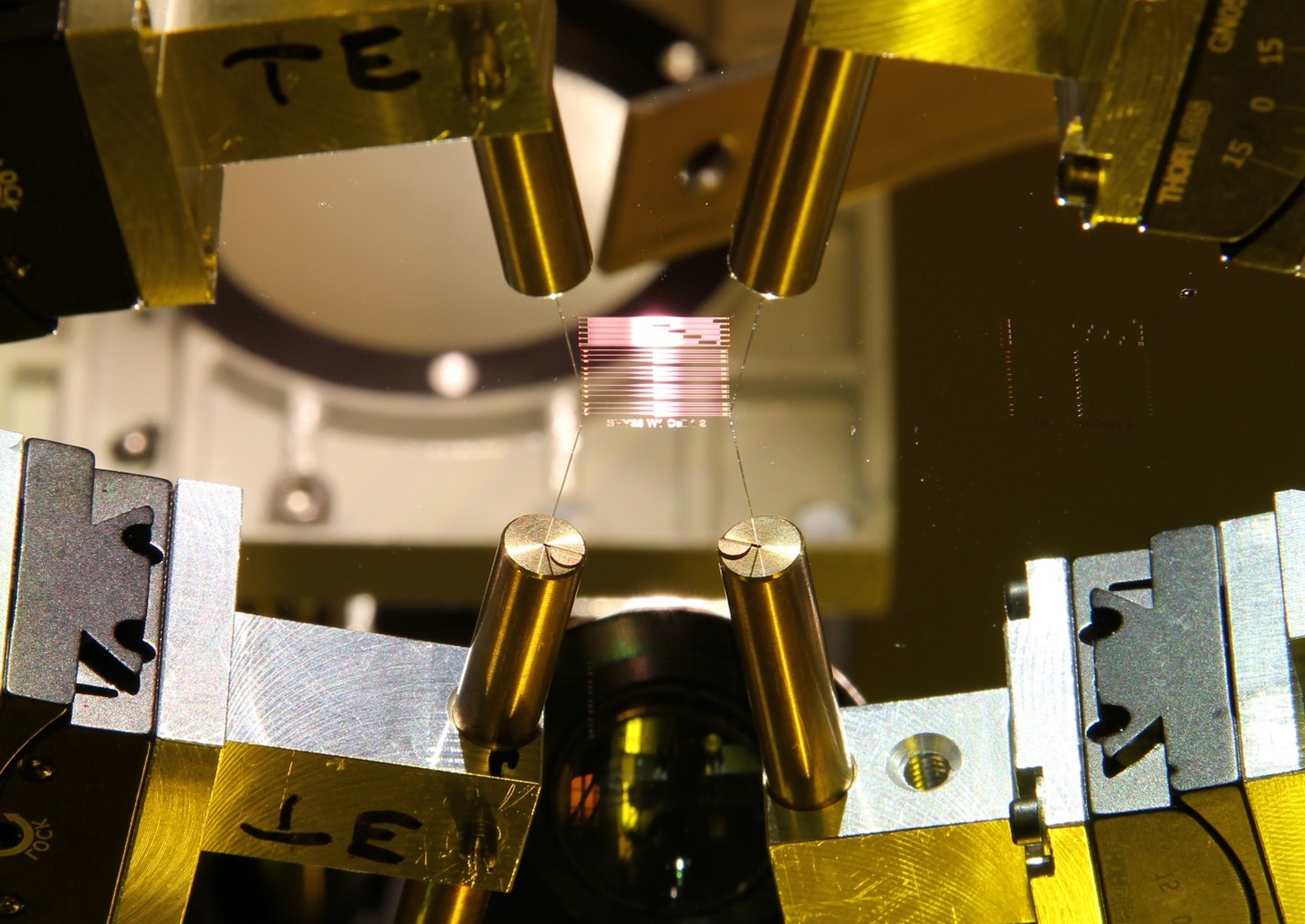Insider Brief
- SmaraQ is a new German research project integrating quantum optics onto chips to advance scalable ion-trap quantum computing and strengthen domestic quantum supply chains.
- The consortium of QUDORA Technologies, AMO GmbH, and Fraunhofer IAF is developing ultraviolet photonic components using aluminum nitride and aluminum oxide for direct integration on ion-trap chips.
- Funded by Germany’s Federal Ministry of Research, Technology, and Space through 2028, SmaraQ aims to replace bulky optical systems with lithographically fabricated waveguides for precise and compact qubit control.
SmaraQ advances quantum computing toward broader deployment. The project’s new photonic integration technology replaces bulky optical systems made of hundreds of separate components with on-chip UV-light waveguides fabricated through lithography, enabling more scalable ion-trap architectures. In addition, the project aims to establish a sustainable supply chain for these devices, strengthening Germany’s position in the global quantum computing arena.
Braunschweig, 07.11.2025 – QUDORA Technologies GmbH, AMO GmbH, and Fraunhofer IAF have joined forces in the SmaraQ research project to develop integrated photonic components for ion-trap quantum computers. Funded by the Federal Ministry of Research, Technology, and Space (BMFTR) through 2028, the project kicked off in September 2025.
Named after the Smaragdkolibri (Blue-tailed Emerald Hummingbird), SmaraQ embodies precision and miniaturization, much like the tiny bird itself, which can perceive ultraviolet light and navigate with laser-focused accuracy at the smallest scales.

Ion-trap quantum computers use naturally identical ions as qubits and excel at qubit control and coherence times, especially when utilizing QUDORA’s proprietary NFQC technology for quantum gate operations. But as these systems grow larger, it becomes increasingly difficult to maintain precise optical access to each qubit for initialization and laser cooling. Today, this is done using free-space laser beams from large, complex optical systems, which limits both the maximum processor size and the total number of qubits that can be managed. SmaraQ addresses this challenge by developing ultraviolet (UV) waveguides and photonic components based on aluminum nitride (AlN) and aluminum oxide (Al₂O₃) that can be integrated directly onto ion-trap chips.
“On-chip integration represents the path forward for ion-trap quantum computing,” explains Dr. Maik Scheller, Head of Photonics at QUDORA. “We are engineering waveguide structures at the nanometer scale—ten thousand times thinner than a human hair—that deliver light with pinpoint precision exactly where our ion qubits demand it.”
The project brings together complementary expertise: QUDORA Technologies serves as the coordinator and system integrator, taking responsibility for advancing the technology towards market readiness beyond the project timeline. Fraunhofer IAF conducts materials research and produces epitaxial growth of thin-film AlN wafers of world-leading quality, while AMO GmbH leverages cutting-edge nanotechnology fabrication capabilities to develop the photonic components on the chips. This collaboration establishes a resilient Germany-based supply chain for these enabling technologies.
The effort aligns with the BMFTR’s funding initiative for enabling technologies in quantum research, which aims to strengthen technological sovereignty in critical quantum supply chains while reinforcing Germany’s and Europe’s leadership in quantum computing and quantum sensing.















